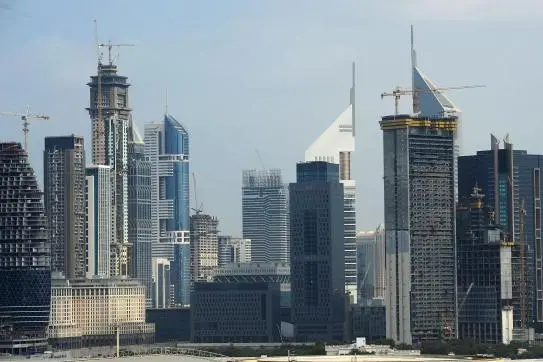PHOTO
With coronavirus cases still being reported and many offices continuing the work from home (WFH) policy , the commercial real estate sector in the UAE could face some pressure next year, an industry expert said.
Since the lockdown in March, when concerned bosses sent masses of employees home, many offices around the country remain mostly empty. Those with client-facing businesses have indeed returned after the restrictions have eased but work from home remains a key trend, and there’s a likelihood of tenants scaling back or changing their office requirements in 2021.
“There will be pressure on the commercial sector in 2021 as leases come up for renewal. In the assets that we manage, we only have a few tenants seeking relief from us. We have some large tenants who still have yet to return to their offices on any great degree. When the lease comes up for renewal [next year], they might reconsider if they need so much space if they’ve managed to work from home,” John Stevens, managing director of property manager Asteco, said during a recent webinar.
Stevens noted that while there isn’t necessarily a rush going on in the UAE to scale back office space, there have already been “a number” of commercial tenants who have opted to send jobs offshore. Other tenants that provide client-facing services are back, but workstations have undergone some changes, such as the installation of partitions and protective screens.
“We have seen a number of organisations offshoring their employees… [They] have been able to move some of the functions overseas and their office requirements have dropped. Remote working will further drive this in UAE,” Stevens added.
He noted that, as firms get more used to the idea of working from home without undermining productivity, the office culture might just remain altered, but it doesn’t mean companies will cease to have a physical location.
“We could see more segmentation rather than consolidation going on, where you might have your office building or headquarters [in one location] and your back office somewhere else [and staff workers] don’t need to be in the same location,” he added.
Negative impact
The UAE’s property market had been on a downtrend prior to the coronavirus outbreak, mainly due to the oversupply glut. The decline in real estate transactions during the global lockdown exacerbated the slowdown and it’s only been recently when sales transactions started to pick up.
The recent months have seen several commercial and residential tenants seeking rental relief in light of the coronavirus pandemic. Among the hardest hit, retail tenants have asked for discounts or rent-free periods of three to six months, while residential tenants have either sought an extension on their leases or moved houses.
It is widely expected that the UAE population will drop, as many expatriates will be forced to return home due to job losses this year. According to Oxford Economics, the UAE alone stands to lose close to a million people to repatriation in 2020.
Full impact
In its latest report, Asteco noted that the UAE real estate market has so far shown some degree of resilience despite the challenges posed by the pandemic. However, it said that the full economic impact has yet to be experienced.
“There is considerable risk that the economic unwinding from the pandemic has yet to begin in earnest,” Elaine Jones, executive chairman and founder of Asteco, wrote in the report.
“With an increased probability of business downsizing and potential job losses, there is a high risk that demand for real estate (rental and sales) will weaken further. This potentially sharp drop in decline is set to coincide with the continued delivery of pre-pandemic committed supply. As such, significant corrections in values (rents in particular) during the second half of the year and into 2021 are likely,” she added.
(Reporting by Cleofe Maceda; editing by Seban Scaria)
Disclaimer: This article is provided for informational purposes only. The content does not provide tax, legal or investment advice or opinion regarding the suitability, value or profitability of any particular security, portfolio or investment strategy. Read our full disclaimer policy here.
© ZAWYA 2020





















